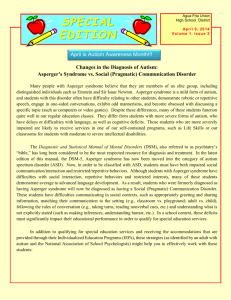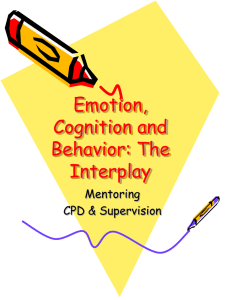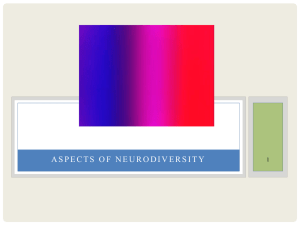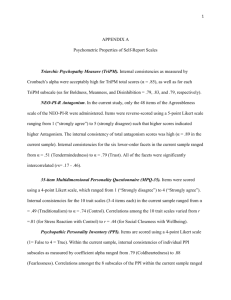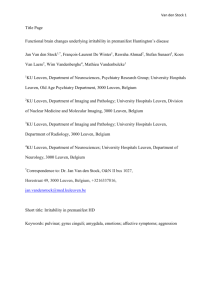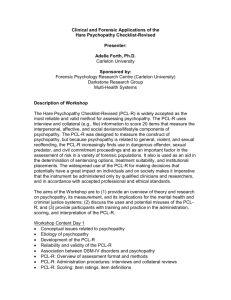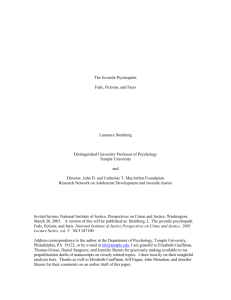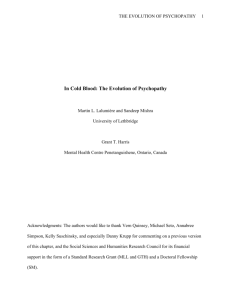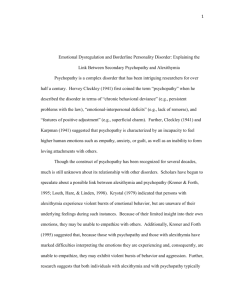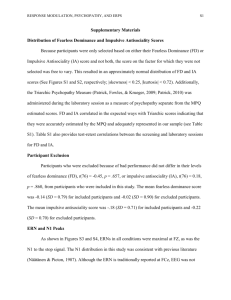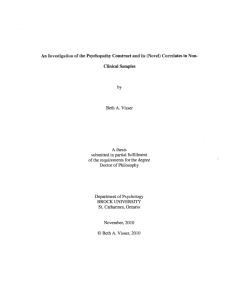Research Projects 2012 Title of Project Emotion Recognition in the
advertisement
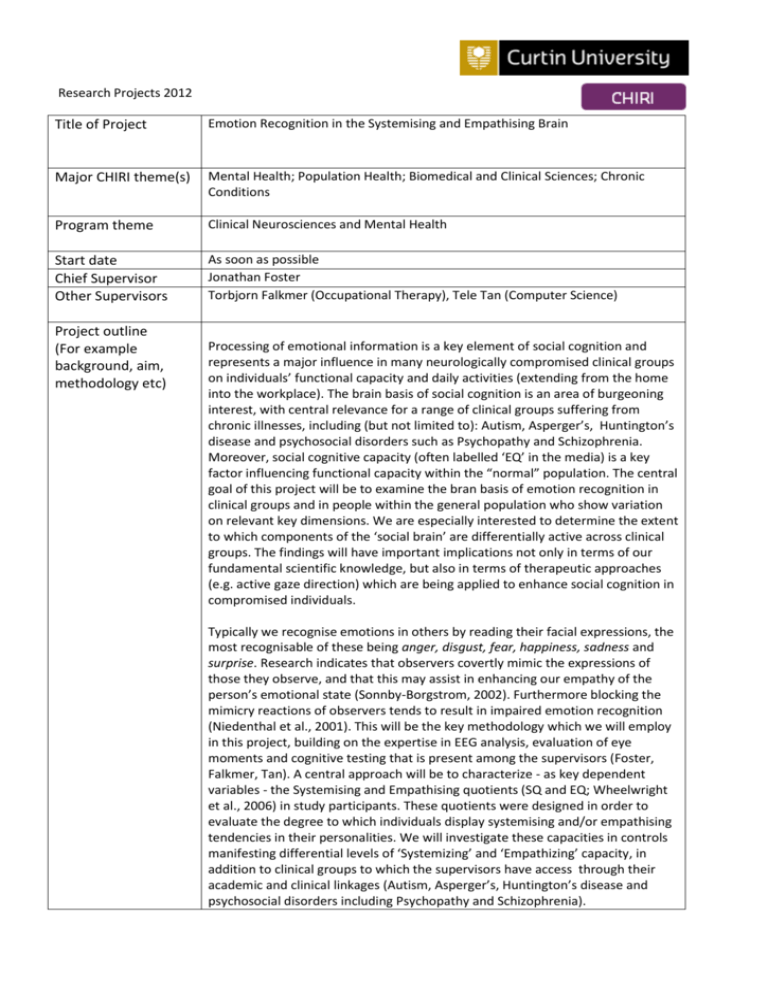
Research Projects 2012 Title of Project Emotion Recognition in the Systemising and Empathising Brain Major CHIRI theme(s) Mental Health; Population Health; Biomedical and Clinical Sciences; Chronic Conditions Program theme Clinical Neurosciences and Mental Health Start date Chief Supervisor Other Supervisors As soon as possible Jonathan Foster Torbjorn Falkmer (Occupational Therapy), Tele Tan (Computer Science) Project outline (For example background, aim, methodology etc) Processing of emotional information is a key element of social cognition and represents a major influence in many neurologically compromised clinical groups on individuals’ functional capacity and daily activities (extending from the home into the workplace). The brain basis of social cognition is an area of burgeoning interest, with central relevance for a range of clinical groups suffering from chronic illnesses, including (but not limited to): Autism, Asperger’s, Huntington’s disease and psychosocial disorders such as Psychopathy and Schizophrenia. Moreover, social cognitive capacity (often labelled ‘EQ’ in the media) is a key factor influencing functional capacity within the “normal” population. The central goal of this project will be to examine the bran basis of emotion recognition in clinical groups and in people within the general population who show variation on relevant key dimensions. We are especially interested to determine the extent to which components of the ‘social brain’ are differentially active across clinical groups. The findings will have important implications not only in terms of our fundamental scientific knowledge, but also in terms of therapeutic approaches (e.g. active gaze direction) which are being applied to enhance social cognition in compromised individuals. Typically we recognise emotions in others by reading their facial expressions, the most recognisable of these being anger, disgust, fear, happiness, sadness and surprise. Research indicates that observers covertly mimic the expressions of those they observe, and that this may assist in enhancing our empathy of the person’s emotional state (Sonnby-Borgstrom, 2002). Furthermore blocking the mimicry reactions of observers tends to result in impaired emotion recognition (Niedenthal et al., 2001). This will be the key methodology which we will employ in this project, building on the expertise in EEG analysis, evaluation of eye moments and cognitive testing that is present among the supervisors (Foster, Falkmer, Tan). A central approach will be to characterize - as key dependent variables - the Systemising and Empathising quotients (SQ and EQ; Wheelwright et al., 2006) in study participants. These quotients were designed in order to evaluate the degree to which individuals display systemising and/or empathising tendencies in their personalities. We will investigate these capacities in controls manifesting differential levels of ‘Systemizing’ and ‘Empathizing’ capacity, in addition to clinical groups to which the supervisors have access through their academic and clinical linkages (Autism, Asperger’s, Huntington’s disease and psychosocial disorders including Psychopathy and Schizophrenia). Keywords Emotion, Autism, Asperger’s, Huntington’s Disease, Psychopathy, Social Cognition This project is suitable for Essential Qualifications Honours Essential skills As per the above Funding Some research funds may be available via the Supervisors Contact for further information AProf Jonathan Foster email: j.foster@curtin.edu.au mobile: 0404 074470 x Masters x Bachelors’ Degree in Psychology or a cognate discipline PhD x



